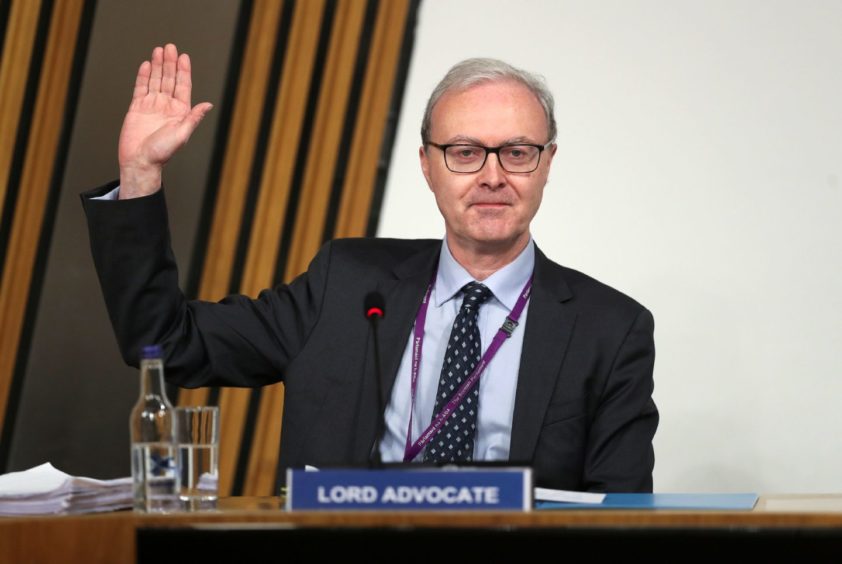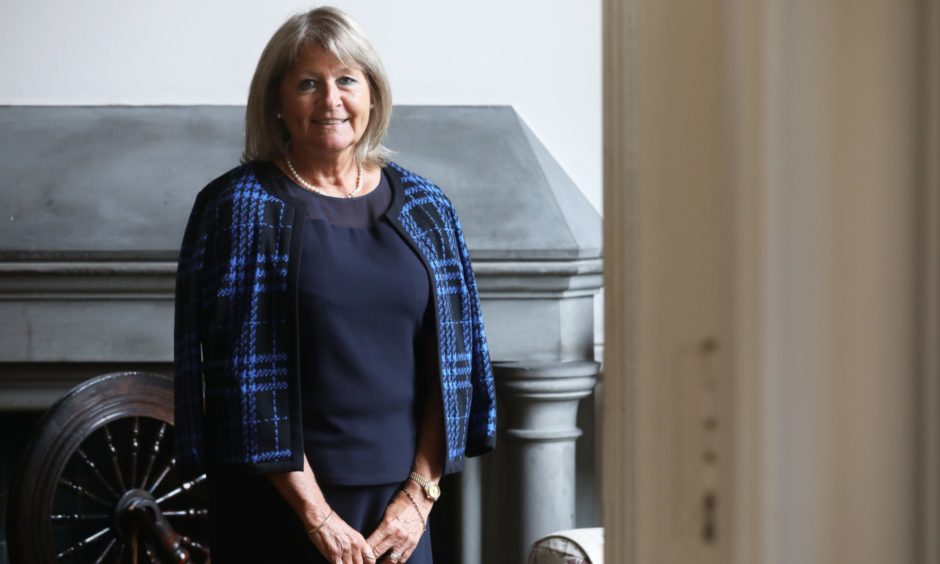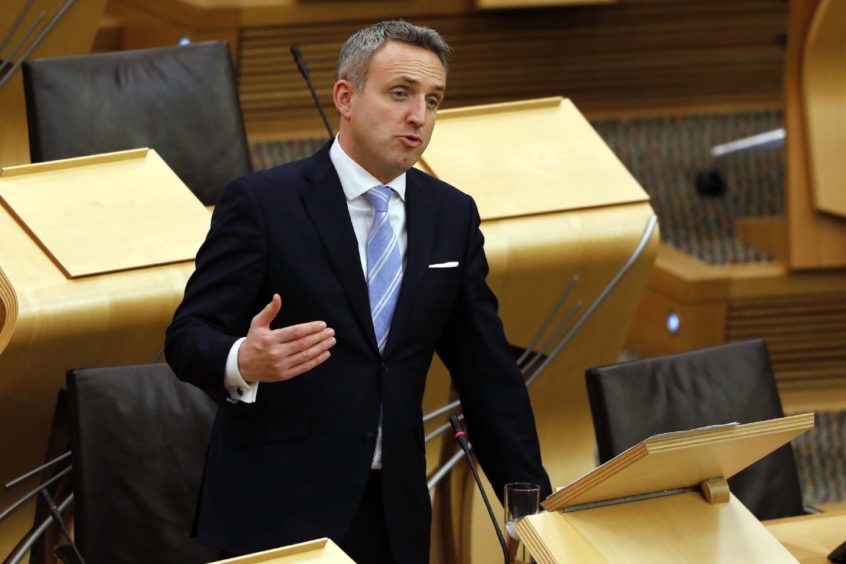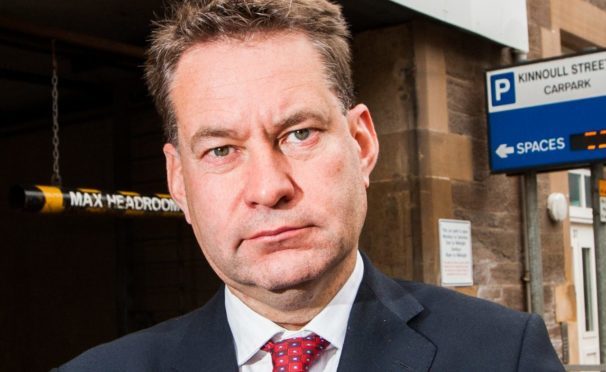The discovery of additional documents that cost the Scottish taxpayer dearly in the Alex Salmond judicial review has been described as “embarrassing” by the country’s top lawyer.
In an at times tetchy meeting, Lord Advocate John Wolffe QC and permanent secretary Lesley Evans provided evidence for a second time to the committee on the Scottish Government’s handling of harassment complaints.
The pair, questioned separately, used legal privilege on several occasions, avoiding answering a number of MSPs’ direct questions.
The prospects of the Scottish Government successfully defending a legal case brought by Mr Salmond changed after documents were discovered in December 2018, the committee heard.
Mr Salmond was awarded more than £500,000 from the public purse when the Court of Session ruled the way the allegations against him were dealt with was “unlawful” and tinged with “apparent bias”.
The Scottish Government settled the case on January 8 2019, with Ms Evans saying the decision to concede, taken by her, came after documents were discovered the month before.
Ms Evans said the documents , which described contact between the investigating officer and two of the complainers, were identified on December 19 2018.
Complaints against Mr Salmond were passed on to police before the former first minister was cleared of all allegations following a trial at the High Court Edinburgh.
Mr Wolffe
Lord Advocate Mr Wolffe QC was first to give evidence to the committee, in a session that lasted just over two hours.
Mr Wolffe was continually asked about the recent decision by the Scottish Parliament to demand the government publish the legal advice it was given.
In his role as Lord Advocate, Mr Wolffe is the Scottish Government’s chief legal officer.
The Lord Advocate said it was not a normal occurrence to disclose legal advice given to governments by their lawyers, in response to inquiries on the Scottish Parliament’s recent vote asking for the guidance to be published.
He listed the three occasions it had been done before — the inquiries into infected blood, historical child abuse and the Edinburgh trams.
Depute convener Margaret Mitchell asked the Lord Advocate if he had been the person to tell First Minister Nicola Sturgeon complaints against Mr Salmond had been handed to the police.
She said: “When you last appeared before the committee, I asked the permanent secretary who informed the First Minister that the decision had been taken to refer complaints to the police.
“The permanent secretary suggested it may well have been yourself who informed the first minister. Can you confirm if that was the case?”
He responded: “Consistent with law officer convention, I am afraid I can’t. It would not be appropriate for me, as a minister, to confirm my involvement or non-involvement at any particular stage.”
She added: “So something as simple and basic as ‘I told the First Minister about the complaints being handed to the police’, you cannot answer?”
To which the Lord Advocate responded: “It wouldn’t be consistent with law officer convention to confirm the involvement or non-involvement of law officers at any particular stage in the process.”
Ms Mitchell then asked the Lord Advocate if he had been in communication with the police regarding the complaints being given to them.
Again, the Lord Advocate said: “It would not be consistent with law officer convention to confirm involvement or non-involvement.”
Document revelation ’embarrassing’
Lib Dem MSP Alex Cole-Hamilton asked the Lord Advocate if anyone had offered to resign following the judicial review.
The Lord Advocate said: “Against the background of a government determined to be, and was determined to be, transparent, to find itself the way it did in the course of the commission and subsequently, in terms of additional documents coming to light, was embarrassing.”
He would not say whether anyone from the senior legal team had offered or threatened to resign.
Perth-based Scottish Conservative MSP Murdo Fraser asked the Lord Advocate if the government had followed the advice given to it by senior counsel ahead of the review.
The Lord Advocate answered: “You’ll appreciate I won’t attribute any particular advice to any particular individual. What I described was the process of litigation for government, or other parties involved in litigation as well.
“The government has not waived its right to legal privilege and the precise ‘toing and froing’ is not something I am going to get into.”
The Lord Advocate said during the course of the original commission the discovery of additional documents of evidence that had not been disclosed was “highly unsatisfactory”, but would not say whether he felt the government was “incompetent”.
Frustrations bubbling to the top
Cast against the backdrop of increased lockdown measures for most of the country, Tuesday’s meeting of the committee investigating the handling of harassment allegations against former first minister Alex Salmond crackled to life every so often, in between the obfuscation of legal parlance and excuse.
This was no more apparent than when convener Linda Fabiani and her depute Margaret Mitchell came to blows over a repeated line of questioning by the latter, with Ms Fabiani telling Ms Mitchell to consult the record — usually published the day after — as to whether she had been given the answer she was probing for.
Behaviour not overly becoming for a committee investigating a subject of such importance, but perhaps a reflection on the frustrations brought about by a lack of real progress in determining just what went down.
The Scottish Government, despite having been instructed by the “will of the Scottish Parliament”, has not released the legal advice it received ahead of the judicial review.
Its top lawyer, Lord Advocate James Wolffe — who throughout Tuesday’s hearing showcased his incredibly sharp legal mind — was unflappable amid the constant barrage of questioning, repeatedly telling them he was not ready to break with convention.
Ms Evans, the permanent secretary, said she was proud those working for the “organisation” — channelling John Le Carre in her grandiose description of the civil service — felt more able than ever to come forward to complain if a minister was bullying them.
It was just coincidence, then, that no-one had done so while the same botched policy that saw the government lose £500,000 of the country’s money to a man paid handsomely by the Russian state TV network was still in play.
Tuesday’s meeting was the 14th of this year, an impressive stat given the restrictions coronavirus has brought about.
First Minister Nicola Sturgeon and her predecessor Alex Salmond are still to give evidence, which one hopes will at least provide more depth and insight into just how things went so badly.
Given how long it has taken to get this far, however, it is likely to be a while yet before the full scale of the matter is uncovered.
No-one wins the war
The government’s senior civil servant, permanent secretary Leslie Evans, was asked about legal advice and clarified her position on the “conspiracy text”.
Labour MSP Jackie Baillie referred Ms Evans to the disclosure of text messages at a previous meeting, which read “the battle may be lost but not the war”.
I am encouraged more people in the organisation are telling us they feel more entitled and supported in coming forward than they have ever before.”
Leslie Evans, permanent secretary
The text has been interpreted by Alex Salmond’s supporters as evidence of a conspiracy against the former first minister.
Asked by Ms Baillie what the “war” was, Ms Evans responded: “This is about a long-standing ensuring within the organisation I lead that we have a Scottish Government that is open, that is supportive, that allows people to bring their whole selves to work and they can do so without fear of bullying or harassment.
“It still remains that phrase was intended to demonstrate I will continue to champion the equality and inclusion in the organisation.”
Mr Cole-Hamilton said it was a “leap” to suggest the reason there had been no further complaints of bullying by staff was because “things had gotten better”.
Referring to the policy that lead to the “botched” investigation still being in place, Mr Cole-Hamilton said its still being in place two years on was the more likely explanation.
Ms Evans denied this, adding: “It was the implementation which was flawed. Not the procedure. I am perfectly clear we need to be very careful about implementing the procedure in future.
“I am encouraged more people in the organisation are telling us they feel more entitled and supported in coming forward than they have ever before.”
Murdo Fraser asked if Ms Evans had been offered resignations from any of her staff in the wake of the judicial review, or if she had offered to resign.
Ms Evans responded: “I cannot answer a question about human resource issues or people issues within the organisation.
“My responsibility is to lead the organisation through this process, and through Covid as well.
She also said the cost to the public purse of any action was at the forefront of her mind as she made her decisions during the review.
Wolffe ‘stonewalled’ inquiry, Evans ‘not any better’
Following Tuesday’s meeting, committee member and Scottish Conservative spokesperson on the Salmond inquiry Murdo Fraser said: “Any lingering hope of this SNP government doing the right thing was dashed today.
“The Lord Advocate should have come to parliament and given clear answers to straight questions. Instead, he decided to stonewall.
“In police interviews, suspects frequently say ‘no comment’. The Lord Advocate had his own version which was to cite law officer convention.
“Following the SNP’s refusal to respect the will of parliament, today’s lack of good faith reconfirms the contempt they have for this committee and by extension the public.
“We still do not know whether the SNP government has asked the Lord Advocate for this information to be released.
“The permanent secretary was not much better and frequently sought to find ways to avoid giving straight answers.”





